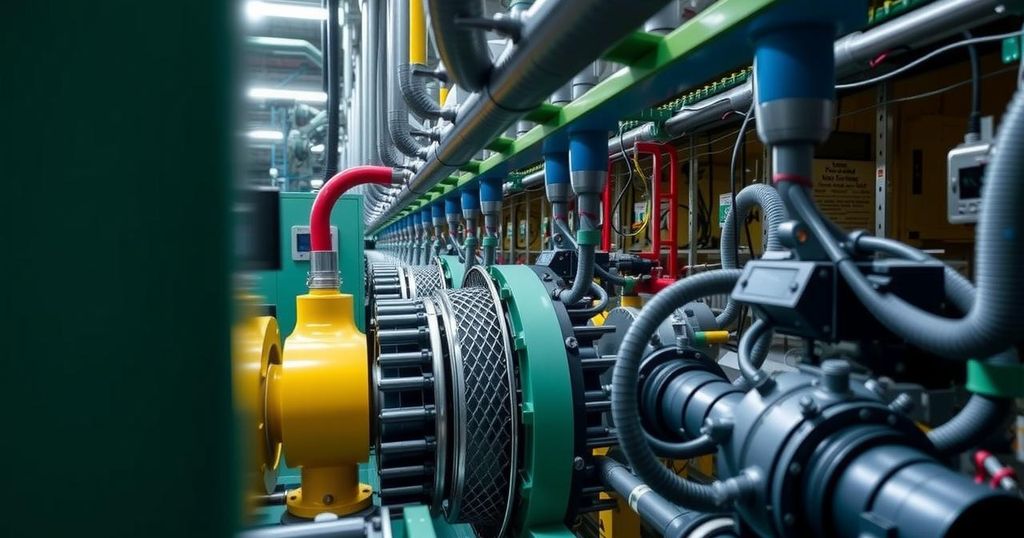Iran has activated advanced centrifuges for uranium enrichment following UN criticism, claiming the actions protect national interests. The IAEA has demanded improved cooperation, exacerbating tensions. Despite warnings about potential weaponization, Iran upholds its program as peaceful.
Iran has announced the activation of new advanced centrifuges for its uranium enrichment program, a move made in response to criticism from the United Nations’ nuclear oversight body, the International Atomic Energy Agency (IAEA). The activation of these centrifuges aligns with Iran’s claims that it is advancing its nuclear capabilities to meet national needs while continuing to assert that its program is solely for peaceful purposes. The IAEA had recently ordered Iran to enhance its cooperation after concerns were raised about traces of uranium at undeclared sites, leading to tensions between the two parties.
The Iranian state news agency IRNA reported that the foreign ministry and Atomic Energy Organization announced this new development amidst an ongoing verbal conflict regarding Iran’s nuclear activities. Although Tehran maintains that its nuclear program is non-military in nature, the enrichment of uranium can potentially lead to nuclear weapons capabilities. Despite Iran’s denials, IAEA Director General Rafael Mariano Grossi has warned that the nation possesses sufficient enriched uranium to potentially manufacture several nuclear bombs if it opts to pursue such a path.
This recent escalation comes shortly after the IAEA’s board expressed its concerns through a resolution that urged Iran to improve its level of cooperation. Iran, however, condemned the resolution as politically motivated, attributing its origin to pressure from three European nations and the United States. Iran’s approach sheds light on the delicate balance in its nuclear negotiations following the U.S. withdrawal from the 2015 nuclear accord, which had previously limited its enrichment capacity. Now, with the determination to progress its program, Iran’s actions may have significant implications for regional security and international relations, as pressures mount from various nations to curtail its nuclear ambitions.
The current situation surrounding Iran’s nuclear program is deeply rooted in the complex history of its international relations, particularly its engagements with the United States and European powers. Following the withdrawal of the United States from the Joint Comprehensive Plan of Action (JCPOA) in 2018, Iran began scaling back its commitments under the agreement, which had initially imposed stringent limitations on its nuclear activities to prevent the development of nuclear weapons. The IAEA has played a critical role in monitoring Iran’s compliance, but persistent disputes over its transparency and cooperation have fueled tensions, leading to calls for responses from the international community.
In conclusion, Iran’s activation of advanced centrifuges marks a significant step in its ongoing nuclear development efforts amidst heightened scrutiny from the IAEA and international actors. The country asserts that these actions are necessary to safeguard its national interests and further its peaceful nuclear ambitions. As tensions continue to escalate between Iran and the international community, especially post-JCPOA, the ramifications of these developments warrant close attention for future diplomatic engagements and security dynamics in the region.
Original Source: www.cnn.com






